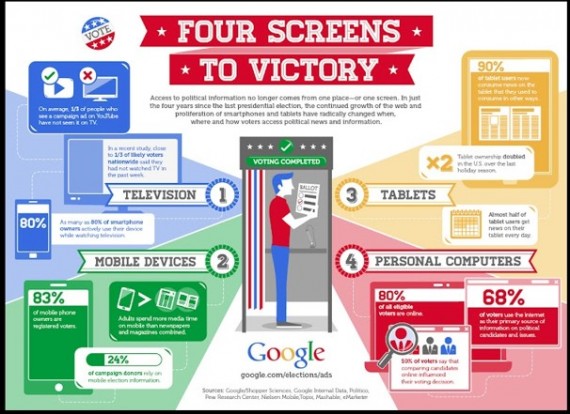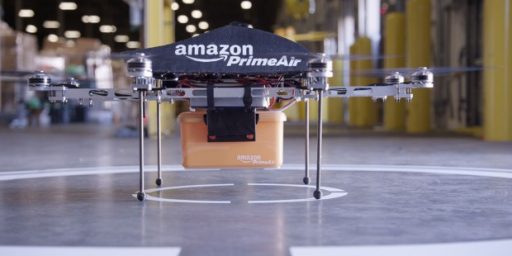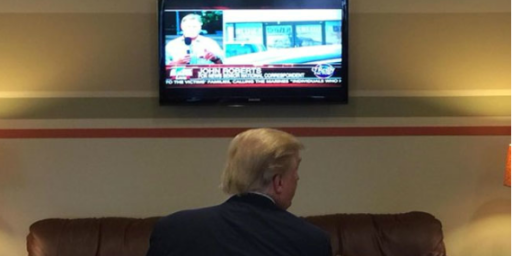Infographic Of The Day: How People Consume Political News
Via Chris Cillizza:
Click here for the large version.
Cillizza observes:
Among the findings:
* One-third of people who have seen a campaign ad on You Tube have not seen the same ad on television.
* One-third of likely voters said they had not watched TV in the past month.
* Tablet ownership doubled in over the 2011 holiday season.
Nothing above means that computers, tablets or smart phones have displaced television as the primary vehicle through which people get their information about politics.
But what they do suggest is that we are in a time of rapid change in information delivery and that change is — and will continue to — force campaigns to deal with the changing consumption habits of potential voters.
Obviously, these trends will only accelerate in the coming years, and political campaigns in 2016 and 2020 are going to have to find a way to reach those people who aren’t watching television. Of course, if these trends lead to fewer political commercials, maybe people will start watching it again.







Cillizza has a typo. Here is the correction:
That seemed a little implausible. I just picked up some lunch and watched about a minute of TV while waiting. TVs remain ubiquitous.
In any event, I think other studies have shown people are watching cable TV largely as much as before, they are just consuming it through different devices or intermediaries, some of which limit their exposure to commercials. I guess the question is what do you mean by TV?
Even more important than on what device they view is whether they watch the political ads that come across whatever screen they are using. 95% of my TV viewing is recorded and commercials are skipped. I don’t recall a single ad this year on electronic media. On the other hand, my mailbox is filled with political ads, mostly local, and I, at least glance at those. Maybe old fashioned mailings will be come more effective as consumers gain control over what they view electronically.
@PD Shaw:
I am not sure. I tend to watch TV only for sports and when someone else in my family is watching and I am in the room, which leads me to involuntarily watch mostly Disney Channel and HGTV, none of which are hotbeds for political advertising.
One thing that I think is a bit hidden in the above: it means that the campaign organizations have lost much of what control they had over the campaigns. It is no longer possible to tailor spots purely for local consumption. Anything that’s put forward anywhere is put forward everywhere. And there’s a record of it for future reference.
“,,,political campaigns in 2016 and 2020 are going to have to find a way to reach those people…”
If you think they currently don’t, then you aren’t really paying attention.